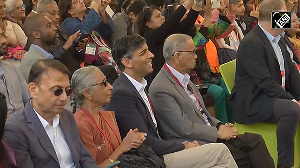Multinational corporations often take the one-size-fits-all approach to new markets and refuse to understand the local nuances and differences that make markets like India somewhat unique.
When I look at the beverage companies to the fashion industry, the big international brands have often made the mistake of applying the same positioning and communication to the Indian market.
In the case of MTV, too, we initially followed the content and template that was used all over the world. We realised that it did not work and came back to reinvent and get a local product. I would put that down as the biggest learning.
You cannot base the channel's content or channel strategy on the chat you had with a guy in the bar last night. The approach is to normally extrapolate that and assume that the country is full of people who are westernised, speak English, listen to rock bands and have travelled the world.
When this happens you have completely misread the market. MTV did precisely that and relied on the "headbangers" fad that was quite hot at that time.
Even a couple of weeks ago, I met someone who told me how she regretted that MTV had gone local. I tell friends like her to come home, because for the kind of music and content that people like she are talking about, I can pretty much fit them all into my living room. In the office, we jokingly call this the "come home" channel.
Most players in our industry who went local -- from Star Plus, which started by going completely local, through to Sony, Discovery and MTV -- realised that it was necessary to embrace a wider audience.
At the same time, for us there was a growing audience that wanted the original template (western music). Instead of diluting the local content from MTV, in December 2004, we decided to serve the purpose by launching another channel, Vh1.
In MTV's case, when we flicked the switch from 100 per cent international to almost entirely local content, we crafted a product totally based on consumer research and insights.
That's critical. You do not get consumer insights by asking a bunch of kids from Malabar Hill in South Mumbai to decide what the rest of the country wants to watch.
You first decide who it is that you want to serve. If that happens to be kids sitting in Gorakhpur and Chennai or other small towns in the country, then you need to talk to that audience and find out what makes it tick.
So, research was the key determinant to the change of strategy. If MTV is as mainstream and mass as you get it in the US, why should I shove it down the throat of an Indian audience because the cocktail circuit likes it?
The philosophy now is to embrace the widest possible base of a youth audience in the country. We started with deconstructing the product and feel of the channel, rebuilding it based on blocks of knowledge that we had on the market, what the customers wanted and what we could lead them towards.
When we started off, the Indian pop music industry was more or less non-existent. There were just half a dozen videos shot in a year compared to around 200 videos shot every year at present. We helped stimulate that industry.
More recently, we launched a daily soap on the channel, which struck many as a "bold" move. But the strategy was based on irrefutable logic: we had gained our leadership in the music and lifestyle space; growth needed to come from elsewhere and the insight clearly was that the youth were heavy soap viewers.
We also could not ignore the fact that the Indian households were largely single TV households. You cannot grab the remote from the housewife and give it to the kid. So the only way to grab the eyeballs in the family was through a soap.
It's been a constant evolution for us. If you take two points in time, the channel has evolved radically. But the change has been constant as well as overnight.
MTV has evolved from changing the music to changing the whole environment (including the veejays), to have more Hindi spoken on the channel, to including programming formats beyond music. We see the channel has evolved as a youth destination and is intruding into the general entertainment space.
Another big lesson that MTV taught us was that the same principles need to be applied to our children's channel, Nickleodeon, and we have just taken the channel local on the same principles.
The big takeaways from our experience are that Bollywood is bigger than what you expect it to be; and language is critical.
As told to Prasad Sangameshwaran







 © 2025
© 2025